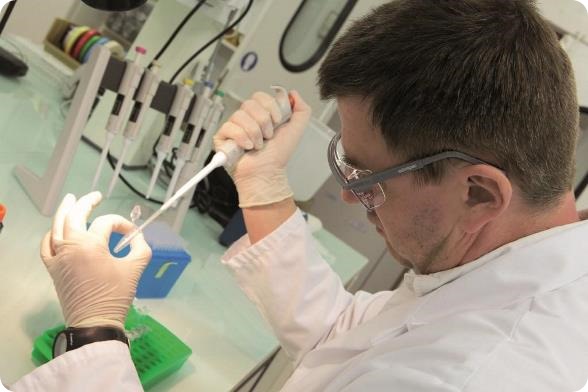Oct 2 2013
libragen, a contract research organization dedicated to biocatalysis and metagenomics, has been a major contributor to the success of PolyModE (Polysaccharide Modifying Enzymes), a large collaborative research project funded by the European Community. The project, which began in 2009 and ended in April this year, looked at developing novel polysaccharide modifying enzymes for the optimized use of hydrocolloids as, for example, food additives or novel therapeutic agents in the food sciences and medical industries. Researchers focused on six industry-targeted hydrocolloids (alginates, carrageenans, chitosans, glycosaminoglycans, pectins, and xanthan gums) where traditional chemistry fails to achieve a certain desired modification.

libragen is internationally recognized for its expertise in biocatalysis and metagenomics (the study of whole genetic material from environmental samples) and is regularly engaged as a partner in such large research programs. As a key member of this collaboration - which included both academic and industrial partners - libragen successfully developed a high-throughput functional screen for the detection of sulphatase activity and metagenomic screening libraries using environmental samples. As a result of this combined approach, 10 novel sulphatase producers were identified from more than 20000 screened metagenomic clones and the partners triumphed in identifying, characterizing and optimizing novel enzymes for the modification of all six targeted polysaccharides overall.
libragen’s biocatalysis project leader, Dr. Rob Ter Halle, will be presenting how biocatalysis offers significant advantages in comparison to classical chemistry in terms of selectivity, specificity and yield, on 10 October at 14:00 at the Industrial Biotech Forum during Biotechnica 2013, Hannover, (8-10 October). His talk, entitled “Applied biocatalysis to obtain novel glyco-conjugates”, will detail how libragen’s bespoke contract research services increased both manufacturing profitability and competitiveness in the context of a real-world example – the synthesis of the cosmetic ingredient glucosyl conjugate of caffeic acid. In this example, libragen’s advanced technology and expertise yielded a remarkably efficient process founded on the principles of green chemistry. Only water was used as a solvent, no derivatization was required and all reagents were obtained from natural, renewable sources. The end-product has vastly improved solubility and oxidative stability compared to caffeic acid, yielding a higher performance compound that is now efficiently produced at a scale of several hundred kilos, while saving both time and money.
Biotechnica delegates can also visit booth E59 to discover how libragen’s expertise in biocatalysis and metagenomic technologies can be applied to enhance their specific application.
Dr. Daniel Auriol, libragen’s CSO, will also present on the advantages of biocatalysis at Ecochem, Basel, Switzerland 19-21 November 2013, where libragen will be exhibiting at booth B18.
For more information, visit www.libragen.com.